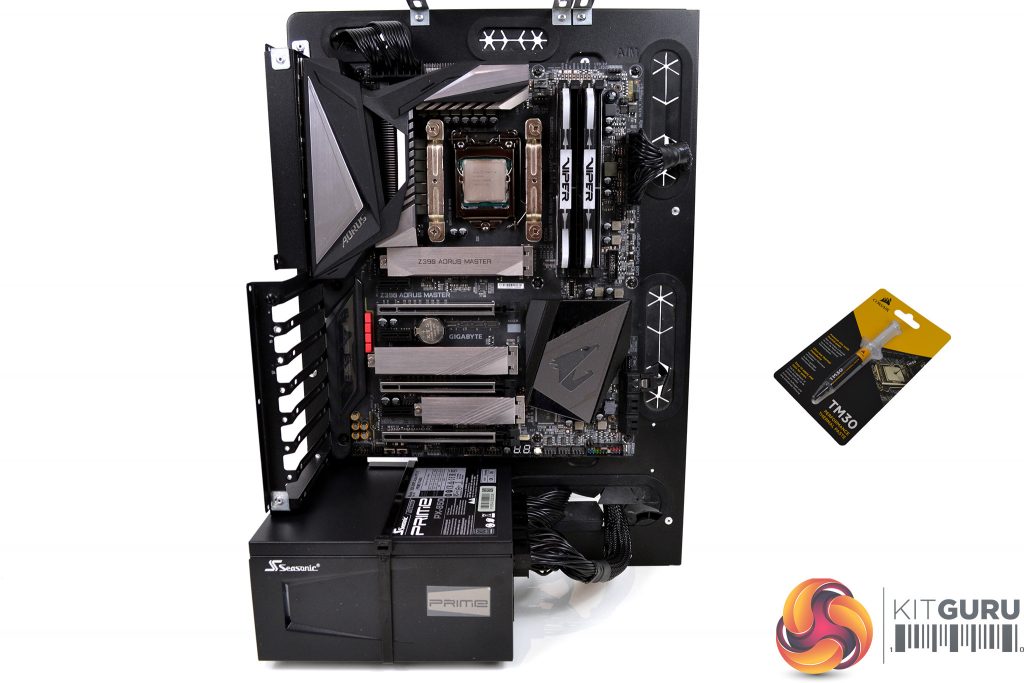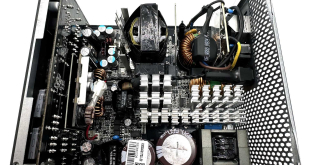Testing Methodology: Thermals/Acoustics
To measure the thermal performance of the Arctic Freezer 7 X, we devised an easily repeatable series of tests. The only variable is the coolers themselves to ensure the results can be accurately compared against one another.
Since the Arctic Freezer 7X isn't naturally suited to being used on a high-end system such as our usual Intel Z390 test bench, we have adjusted the testing procedure to better suit the occasion.
First, we will lock the Core i9-9900K at its 3.6GHz all-core base clock speed, with a 1.15V Vcore applied in the BIOS. Then, let the system idle in windows for 15 minutes and measure temperature. At the same frequency, we will then measure the load temperature to compare the thermal performance against coolers we have tested previously and add in data from a stock Intel cooler at this CPU frequency.
We will then move the Freezer 7X over to an AMD X570 based system with a Ryzen 7 3700X processor running at stock configuration and measure the thermal performance compared with stock AMD Wraith Prism and Wraith Spire coolers.
The temperatures presented in the graphs will be average Delta temperatures measured over the length of the test. We will calculate the Delta temperature by deducting the ambient temperature in the test room from the measured CPU temperature, both at idle and under load. Corsair TM30 thermal compound is used at all times to ensure consistency and all CPU fans will be set to maximum RPM to determine the raw thermal performance.
Intel Test Rig
- CPU – Intel Core i9-9900K
- Motherboard – Gigabyte Z390 Aorus Master
- Memory – 16GB (2x 8GB modules) Patriot Viper RGB DDR4-3600 CL16
- Storage – Corsair Force LE 120GB SATA SSD
- Power Supply – Seasonic Prime PX-850 850W
AMD Test Rig
- CPU – AMD Ryzen 7 3700X
- Motherboard – Asus ROG Strix X570-E Gaming
- Memory – 32 GB (4 x 8 GB modules) G.Skill Trident Z RGB DDR4-3200 C16
- Graphics card – Gigabyte RTX 2070 Super Gaming OC 8G
- SSD – 500 GB Corsair MP600 PCIe Gen 4 M.2 NVMe
- Power Supply – Seasonic Prime PX-850 850W
Noise Testing
Noise levels will be measured with our sound meter at a distance of 1 meter from the test bench. The cooler’s fans will be set to their maximum RPM rating. The ambient noise level in the room is measured at 37.5dBA and the peak noise level of the cooler will be recorded in dBA.
 KitGuru KitGuru.net – Tech News | Hardware News | Hardware Reviews | IOS | Mobile | Gaming | Graphics Cards
KitGuru KitGuru.net – Tech News | Hardware News | Hardware Reviews | IOS | Mobile | Gaming | Graphics Cards



